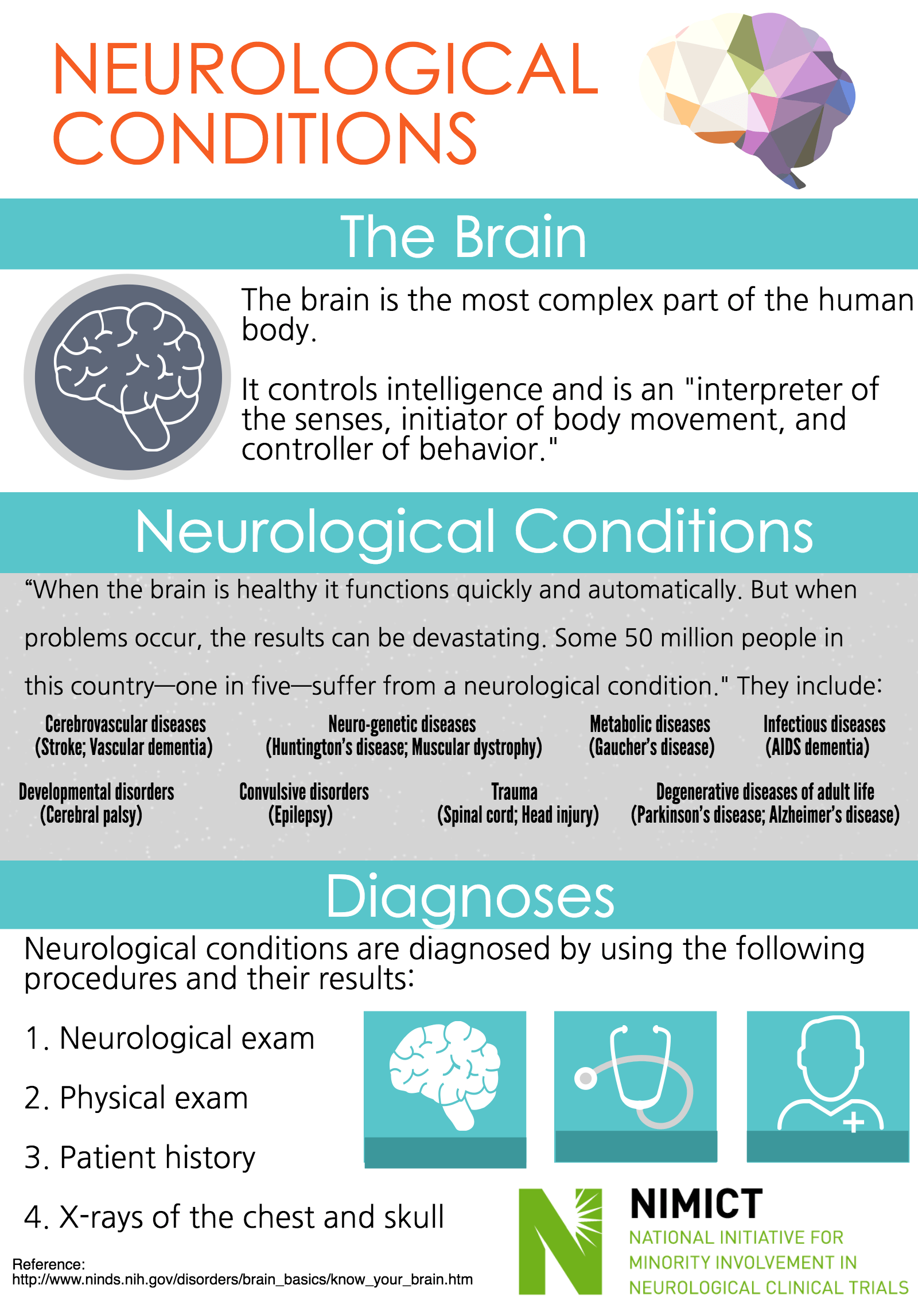Neurological Conditions
NIMICT Original

Neurological Conditions
The Brain
The brain is the most complex part of the human body. It controls intelligence and is an "interpreter of the senses, initiator of body movement, and controller of behavior."
Neurological Conditions
“When the brain is healthy it functions quickly and automatically. But when problems occur, the results can be devastating. Some 50 million people in this country—one in five—suffer from a neurological condition." They include:
-Cerebrovascular diseases (Stroke; Vascular dementia)
-Neuro-genetic diseases (Huntington’s disease; Muscular dystrophy)
-Metabolic diseases (Gaucher’s disease)
-Infectious diseases (AIDS dementia)
-Developmental disorders (Cerebral palsy)
-Convulsive disorders (Epilepsy)
-Trauma (Spinal cord; Head injury)
-Degenerative diseases of adult life (Parkinson’s disease; Alzheimer’s disease)
Diagnoses
Neurological conditions are diagnosed by using the following procedures and their results:
- Neurological exam
- Physical exam
- Patient history
- X-rays of the chest and skull